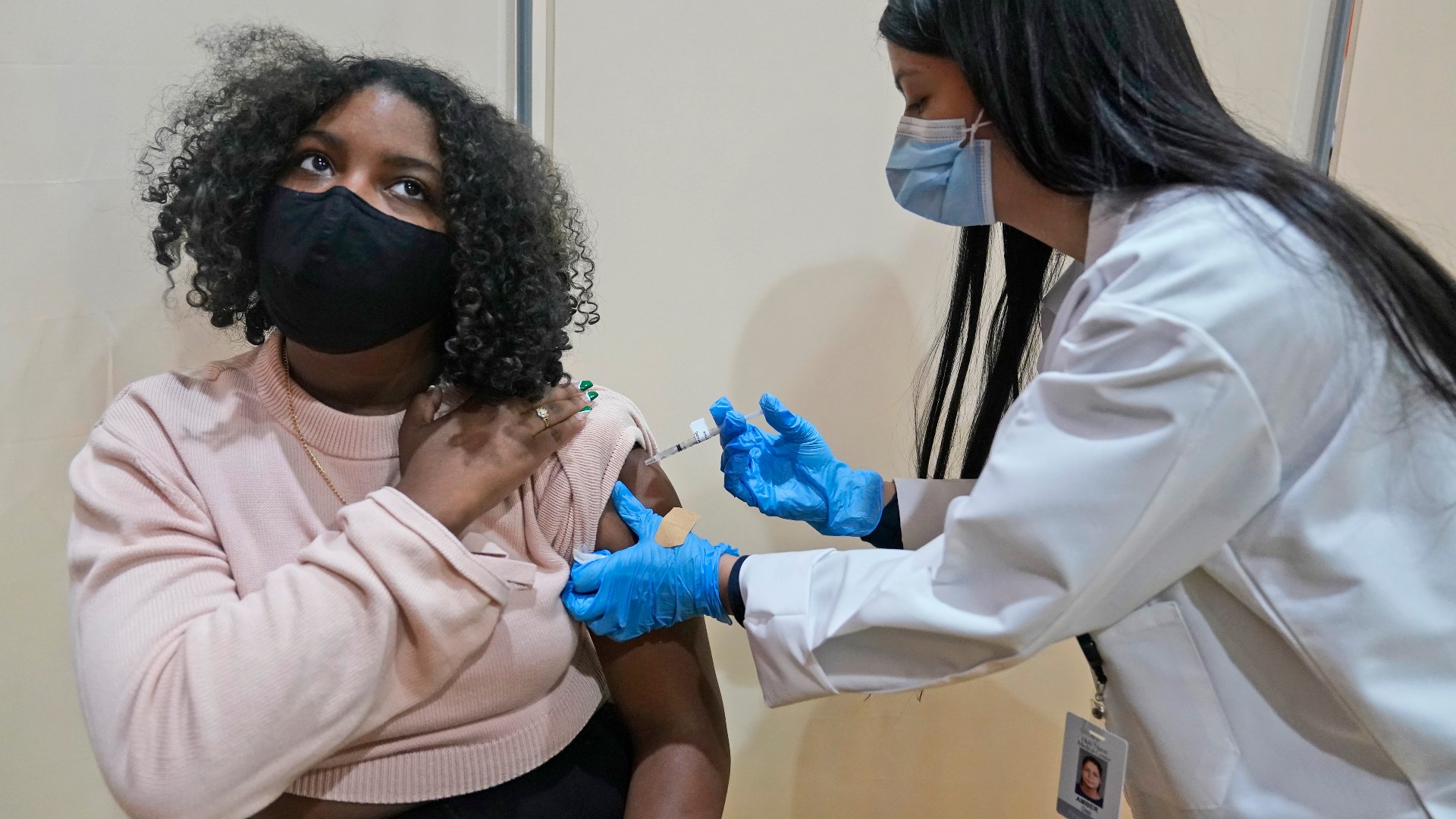WASHINGTON — One of the biggest arguments against getting a COVID-19 vaccine is all over the internet and is completely false. I'm sure you've heard it before: "I don't need the COVID vaccine, because I already had COVID and now I'm immune."
The problem with a rumor like this one is that it actually sounds pretty logical; why get a vaccine for antibodies that your body already created naturally?
But not only is it false, it's potentially harmful.
Our Verify team spoke with the experts to explain what benefits someone who previously recovered from COVID-19 would get from the vaccine.
THE QUESTION
Is there any benefit to getting the vaccine if you’ve already had COVID?
OUR SOURCES
- Dr. Namandje Bumpus, professor and director of the Department of Pharmacology and Molecular Sciences at Johns Hopkins University School of Medicine
- Dr. Lee Riley, professor and chair of Infectious Diseases and Vaccinology at the University of California, Berkeley School of Public Health
THE ANSWER
Yes, there is a benefit to getting vaccinated following previous infection and recovery. It is added insurance that you will continue to be protected in the future and against new variants that arise.
WHAT WE FOUND
Our Verify researchers spoke with two infectious disease specialists, both heads of their departments, Dr. Namandje Bumpus from Johns Hopkins University and Dr. Lee Riley at the University of California, Berkeley.
They explained it comes down to this of idea of variability.
"We don't fully understand what that person's individual level of protection might be, how long that protection might last, there's so much variability potentially," Dr. Bumpus said.
That variability boils down to:
- How much virus was in your body?
- How many antibodies did you create?
- And more importantly, how long will those antibodies last and are you at risk of other variants that may surface?
"With the vaccines we've done controlled trials in originally tens of thousands of people, and now you've had millions of people take these vaccines," Dr. Bumpus said. "It's just we understand much more [about] the response."
Our experts explain that when you get the vaccine, the results are much more consistent and trackable.
"With a vaccine you get the same dose, so you're assured that you get the right dose and the right immune response," Dr. Riley said. "And so, yes, in some situations, it may be wise to get a vaccine, even if you had the infection, especially if you had just a mild form of the infection... it's sort of like giving a booster to the natural immunity that you acquire."
The CDC agrees that you should get the vaccine whether you’ve been sick before or not, because we just don’t know enough about how long natural immunity lasts.
"Even if you have already recovered from COVID-19, it is possible—although rare—that you could be infected with the virus that causes COVID-19 again," the CDC writes. "Studies have shown that vaccination provides a strong boost in protection in people who have recovered from COVID-19."
So yes, there’s a benefit to getting vaccinated; it’s extra insurance that if you get sick again, it won’t be as bad.
Scientists are currently studying how much more protected vaccinated people are from reinfection. On Friday, the CDC released a new report that showed that reinfection was more common among individuals who were unvaccinated.
Scientists looked at 246 Kentucky residents who were initially infected between May and Dec. 2020 and then reinfected between May 1 and June 30, 2021, and found those who were unvaccinated were more than two times as likely be reinfected.
"If you have had COVID-19 before, please still get vaccinated,” CDC Director Dr. Rochelle Walensky said in a press release. “This study shows you are twice as likely to get infected again if you are unvaccinated. Getting the vaccine is the best way to protect yourself and others around you, especially as the more contagious Delta variant spreads around the country."
The study noted at least five limitations, including the lack of whole genomic sequencing which would prove the positive test was a reinfection rather than continued viral shedding from the first infection, and it's possible that some of those listed as 'unvaccinated' were miscategorized and were actually vaccinated at a federal or out-of-state site.
The study ended by saying more research needed to be done.
"Finally, this is a retrospective study design using data from a single state during a 2-month period; therefore, these findings cannot be used to infer causation," the study said. "Additional prospective studies with larger populations are warranted to support these findings."

